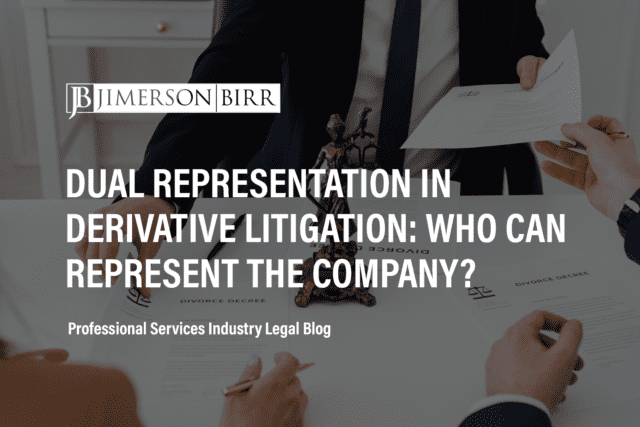What are executive compensation issues?
Executive compensation issues refer to the controversies and concerns surrounding the pay and benefits of top-level executives in a company. In particular, executive compensation has been a contentious issue in corporate law due to the large amounts of money involved and the potential for conflicts of interest between executives and shareholders.
One of the main concerns surrounding executive compensation is the issue of fairness. Critics argue that some executives receive exorbitant pay packages that are not commensurate with their performance, skills, or contributions to the company. Moreover, executive compensation packages often include stock options, which may incentivize executives to focus on short-term gains at the expense of long-term shareholder value.
Another concern is the lack of transparency surrounding executive compensation. Shareholders may not have access to complete information about the compensation packages of top executives, which can make it difficult to evaluate whether the pay is fair and aligned with company performance.
Need help with a matter related to executive compensation issues? Schedule your consultation today with a top shareholder disputes and derivative litigation attorney.
In Florida, which laws and regulations apply to executive compensation issues?
In Florida, executive compensation follows the governance of various Florida and federal laws and regulations, including:
- Florida Business Corporation Act (FBCA): The FBCA governs corporations in Florida and includes provisions related to executive compensation. For example, the act requires that the compensation of officers and directors be reasonable and commensurate with the services performed.
- Florida Nonprofit Corporation Act: This law applies to nonprofit corporations in Florida and includes provisions related to executive compensation. Nonprofit corporations must ensure that executive compensation is reasonable and not excessive.
- Florida’s Deceptive and Unfair Trading Practices Act: This law prohibits deceptive or unfair trade practices, including false or misleading statements about executive compensation.
- Federal Securities Laws, including the Securities Exchange Act of 1934: Publicly traded companies must comply with federal securities laws, including requirements to disclose executive compensation in annual proxy statements and other reports.
In addition to these laws and regulations, the Florida Department of State, Division of Corporations, provides guidance and resources related to executive compensation for corporations and nonprofit organizations in Florida.
What are common issues regarding executive compensation issues that could lead to litigation?
There are several common issues regarding executive compensation that could lead to litigation. Some of these include:
- Breach of fiduciary duty: Executives owe the company and its shareholders a fiduciary duty to act in their best interests. An executive receiving excessive compensation or entering a self-dealing transaction could breach fiduciary duty.
- Disclosure violations: Companies are required to disclose executive compensation in their annual proxy statements and other reports. If a company fails to disclose executive compensation or makes false or misleading statements about compensation, this could lead to litigation.
- Stock option backdating: Companies sometimes face allegations of backdating stock options to executives, which can result in artificially inflated compensation. This practice is illegal and is very likely to end up in court.
- Incentive compensation misaligned with company performance: If executives receive large bonuses or compensation packages not aligned with company performance, shareholders may take legal action to recover damages.
- Excessive severance payments: If an executive receives a large severance payment after leaving a company, shareholders may argue that the payment was excessive and not commensurate with the executive’s performance.
When a set of facts is appropriate to cause lead to executive compensation issues, there are many paths a claimant may take. We are value-based attorneys at Jimerson Birr, which means we look at each action with our clients from the point of view of costs and benefits while reducing liability. Then, based on our client’s objectives, we chart a path forward to seek appropriate remedies.
To determine whether your unique situation may necessitate litigation, please contact our office to set up your initial consultation.
What evidence does a plaintiff generally need to file a lawsuit regarding executive compensation issues, and what are common legal defenses to those claims?
To successfully file a lawsuit regarding executive compensation issues, a plaintiff must provide evidence that the executive’s compensation was unreasonable, excessive, or not aligned with company performance. This evidence may include the following:
- Compensation data: Plaintiffs may use compensation data to argue that an executive’s compensation was excessive compared to other executives in similar positions or companies in the same industry.
- Performance data: Plaintiffs may use performance data to argue that an executive’s compensation does not align with company performance or that the executive did not perform at a level commensurate with their compensation.
- Internal company documents: Plaintiffs may use internal company documents, such as emails, memos, and board meeting minutes, to demonstrate that executives engaged in self-dealing or other conflicts of interest.
- Expert testimony: Plaintiffs may use expert testimony to establish industry norms for executive compensation or to provide analysis of company performance and compensation.
Some common legal defenses to claims of executive compensation issues include:
- Business judgment rule: The business judgment rule provides a legal presumption that corporate directors and officers acted in good faith with the company’s best interests in mind. This defense argues that the compensation package was reasonable and appropriate based on the information available to the board of directors.
- Lack of standing: Shareholders must have standing to bring a lawsuit related to executive compensation. The lawsuit may face dismissal, though, if a shareholder cannot demonstrate that they suffered a direct injury due to the alleged misconduct.
- Statute of limitations: Shareholders generally have limited time to bring a lawsuit related to executive compensation. If the statute of limitations has expired, the court may dismiss the case.
- Preemption: Federal securities laws may preempt state law claims related to executive compensation in certain circumstances.
- Safe harbor provisions: Certain safe harbor provisions in federal securities laws protect forward-looking statements, including statements about executive compensation. If the alleged misconduct falls within the safe harbor provisions, the court would have grounds to dismiss the case.
To see what actions or defenses may be available for your unique situation, please contact our office to set up your initial consultation.
Frequently Asked Questions
- Why is executive compensation an issue?
Executive compensation can become an issue when it is excessive, not aligned with company performance, or when executives engage in self-dealing or other conflicts of interest.
- Can shareholders sue over executive compensation?
Shareholders may sue over executive compensation issues if they demonstrate that the compensation package was excessive, not aligned with company performance, or involved self-dealing or other conflicts of interest.
- What can companies do to prevent executive compensation issues?
Companies can prevent executive compensation issues by establishing clear and transparent compensation policies, tying compensation to performance metrics, and ensuring that executives are not engaging in self-dealing or other conflicts of interest.
Have more questions about an executive compensation issues-related situation?
Crucially, this overview of executive compensation issues does not begin to cover all the laws implicated by this issue or the factors that may compel the application of such laws. Every case is unique, and the laws can produce different outcomes depending on the individual circumstances.
Jimerson Birr attorneys guide our clients to help make informed decisions while ensuring their rights are respected and protected. Our lawyers are highly trained and experienced in the nuances of the law, so they can accurately interpret statutes and case law and holistically prepare individuals or companies for their legal endeavors. Through this intense personal investment and advocacy, our lawyers will help resolve the issue’s complicated legal problems efficiently and effectively.
Having a Jimerson Birr attorney on your side means securing a team of seasoned, multi-dimensional, cross-functional legal professionals. Whether it is a transaction, an operational issue, a regulatory challenge, or a contested legal predicament that may require court intervention, we remain a tireless advocate every step of the way. Being a value-added law firm means putting the client at the forefront of everything we do. We use our experience to help our clients navigate even the most complex problems and come out the other side triumphant.
If you want to understand your case, the merits of your claim or defense, potential monetary awards, or the amount of exposure you face, you should speak with a qualified Jimerson Birr lawyer. Our experienced team of attorneys is here to help. Call Jimerson Birr at (904) 389-0050 or use the contact form to set up a consultation.

We live by our 7 Superior Service Commitments
- Conferring Client-Defined Value
- Efficient and Cost-Effective
- Accessibility
- Delivering an Experience While Delivering Results
- Meaningful and Enduring Partnership
- Exceptional Communication Based Upon Listening
- Accountability to Goals










